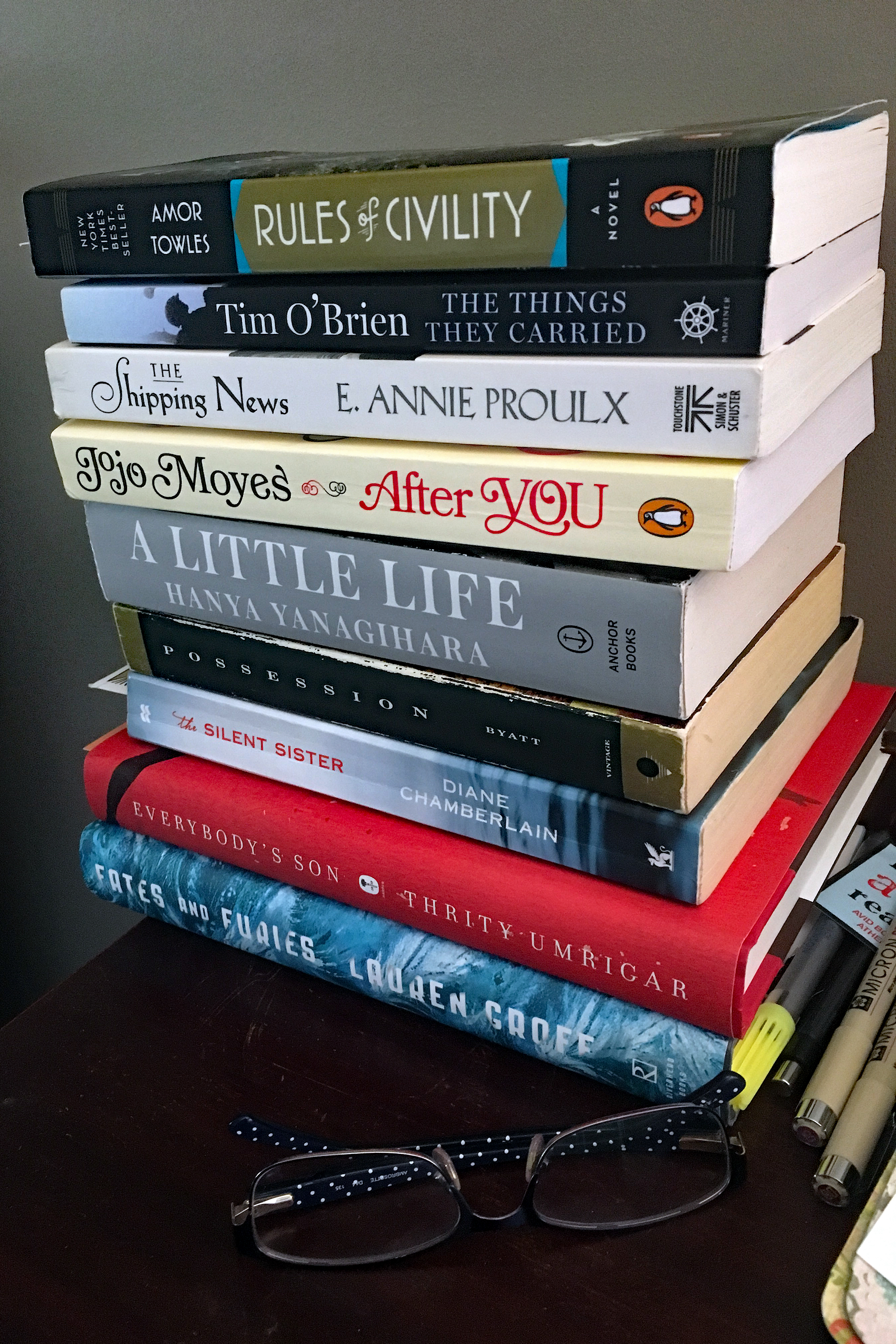I’ve just finished Part II of Choose Your Life & it is like I’ve read two different books. Part I was very practical. Each section had a worksheet that went along with the point it was making, and very literally you put to paper your priorities and your plan for getting them back in line. I loved it.
Part II, not so much. Part II has been very philosophical, and there have even been some points I’ve disagreed with (more on that later.) Anyway, while Part II has been good, it has been a little bit of a let down after feeling like I was making so much progress during Part I.
That said, there were two chapters I really liked. The first one was “Wake up Your Dreams.” To me, it seemed this chapter actually belonged in the first part because it had a practical exercise for you to go back & remember that dream you had for yourself that you’ve let go. For me, that dream was writing. Anyone who reads this blog is seeing the results of one of my ‘assignments’ of remembering my dream.
The other chapter of Part II that I really like is on knowing who to trust. Subtitled Ask the Deeper Question to Determine Trustworthiness, this chapter points out that when deciding if you can trust someone, you must not only ask the question, “Can they?,” you must also ask, “Will they?” I am currently in a situation with a person that I need to be able to trust. More than a year ago, she gave her word on something that she hasn’t lived up to.
“Ask yourself the deeper question of what she will do in the moment of choice. Watch how she fulfills her commitments to others in both small and large responsibilities. . . Personal responsibility is like a light switch in most people; it’s either on or off. While no one is perfect, if she takes small commitments seriously, she is very likely to make large commitments with the same seriousness.”
I’ve watched how this person has not been willing to fulfill on other promises to others in her life, and so I’m greatly doubting her willingness to fulfill on her promise to me.
Then the greater lesson in this is – am I trustworthy? Do I carry through on the things I say I will? How often do I use the phrase, “I’ll try to.” Huling makes the point that saying that you will TRY to do something “clearly says you are not committed and are already hedging.” He suggests you eliminate this word from your vocabulary. Hmmm. . . sounds familiar to all you Sandler folks out there!
Anyway, this chapter has made me stop and think about the things in my life I’ve said I would do and need to make good on.
The part of Part II I disagree with? It is in the chapter, “Have the Courage to be Yourself,” and he’s talking about living authentically. Huling asks three progressive questions: Are you honest with everything you say?, Are you honest when you are silent? and Are you honest in the image you project? In this third section, Huling proposes that if you have friends or coworkers who believe you respect them, but secretly you don’t, you’re not living authentically. He points to fear that keeps us from being less than honest in these relationships and says that eventually exhaustion will overwhelm us. Then he states, “Have the courage to be you.”
I disagree. I think that we all have people in our life that we tolerate for the greater good. Do they have to be our closest friends? No. Are they the person at work whose opinion we seek or want to collaborate with? Certainly not. However, in order to exist in certain circles or maintain some semblance of peace at work, we operate in a ‘get along’ mode. I believe if I lived in such a way that every person who fell short of my respect or disappointed me knew it, I’d have a life of turmoil and loneliness.
Well, Part III is next, and I’ll let you know how that goes.
Thanks for reading ~





“He points to fear that keeps us from being less than honest in these relationships and says that eventually exhaustion will overwhelm us. Then he states, “Have the courage to be you.””
Um, yeah, that is great IN THEORY. Sounds wonderful. But unless you are independently wealthy and don’t need to be employed and, as you point out, don’t desire any type of companionship, it isn’t realistic. Besides, even our bestest friends and closest loved ones disappoint us some times, but 1) whose fault is that–yours or theirs and 2) that is what forgiveness is for.
Oh, yeah, and I am paranoid enough to wonder if I am the friend! 🙂
Not at all. . . you know that. And, you know that I consider you one of my closest if not the closet friend I have, so you know that you don’t fit into the category of the last paragraph either! But yes, I guess that is what I meant by this section of the book was very philosophical – great in theory, but not nearly as practical.
Thanks for reading, Bunny!